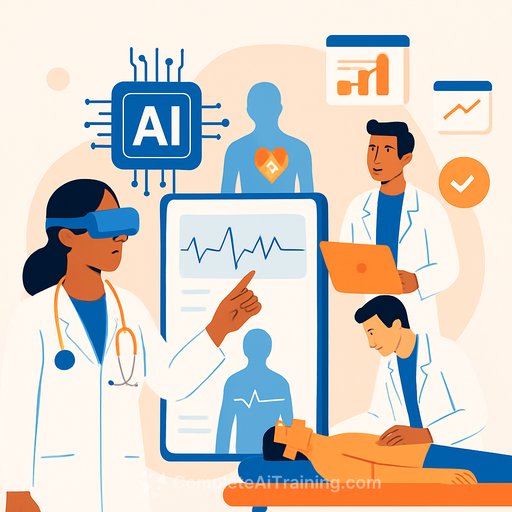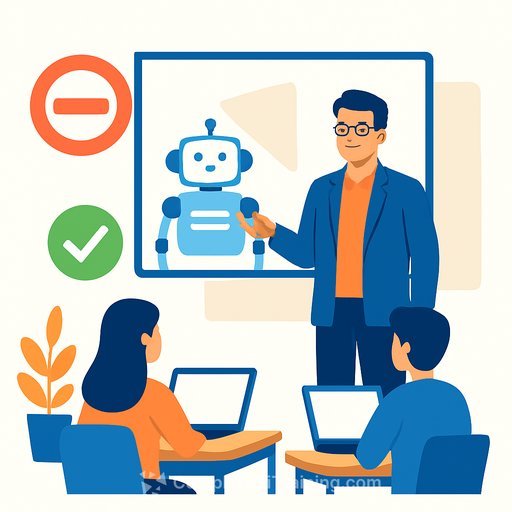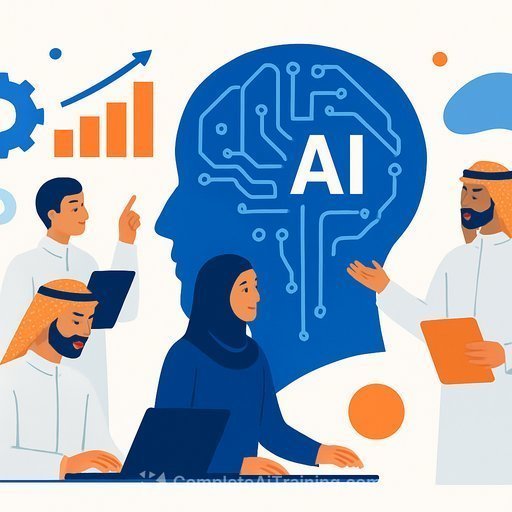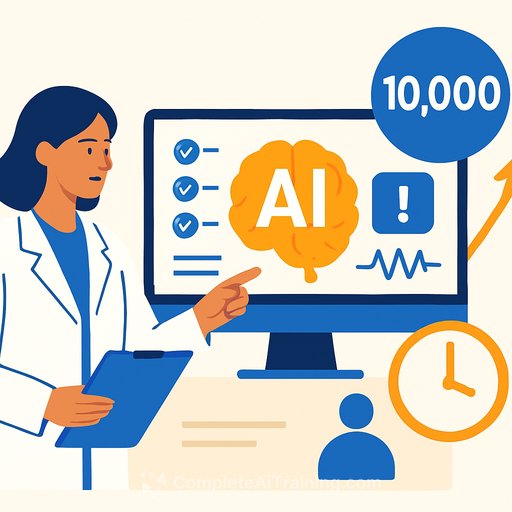AI in Healthcare Education: The Future of Learning Explained
Artificial Intelligence is changing how healthcare professionals learn. Immersive simulations, adaptive study paths, and instant feedback are compressing learning cycles and improving patient-centered practice.
The goal is simple: graduate and upskill clinicians who make better decisions, retain knowledge longer, and communicate with empathy-starting on day one.
From Static Lectures to Active Practice
AI enables realistic, low-risk practice with virtual patients and scenario-based training. These experiences turn theory into action, speeding up competence in diagnostics, procedures, and team communication.
For background on why simulation works, see AHRQ's primer on simulation in healthcare here.
AI as a Personalised Learning Companion
Ankit Modi, Founding Member & Chief Product Officer at Qure.ai, notes that AI-driven simulations and adaptive platforms connect classroom knowledge to clinical decisions. Students can practice procedures safely, repeat difficult scenarios, and strengthen judgment through data-informed feedback.
Immersive and Accessible at Scale
Tejasvi Rao Veerapalli, CEO of Apollo Hospitals, Hyderabad, highlights how AI expands access to high-quality training. With intelligent simulation, real-time feedback, and adaptive content, programs can standardize skill-building across sites and reduce training gaps.
From Tool to Mentor
Jeevan Kasara, Director & CEO of Steris Healthcare, describes AI moving from diagnostic aid to learning mentor. Virtual patients sharpen reasoning, adaptive assessment meets individual needs, and natural language tools make guidance available in the moment of learning.
Beyond Textbooks to Dynamic Learning
Rustom Lawyer, Co-Founder and CEO of Augnito, points to AI's role in connecting theory with practice. Realistic simulations and immediate feedback build confidence and accuracy while improving long-term recall.
What to Implement This Year
- Prioritize skills suited to simulation: airway management, triage, sepsis recognition, ECG interpretation, and radiology pattern recognition.
- Adopt adaptive learning in your LMS: deliver case sets that adjust to performance and surface weak areas fast.
- Use virtual patients and OSCE-style stations with automated scoring to measure consistency and reduce bias.
- Integrate natural-language tools for guideline lookup, note drafting, and patient education-always with faculty oversight.
- Build feedback loops: link simulation results, case logs, and assessments to personalized study plans.
- Establish governance: data protection, model validation, bias monitoring, and clear escalation to human supervisors.
Metrics That Matter
- Time-to-competence and pass rates on high-stakes skills
- Retention at 30/60/90 days (spaced retrieval and refreshers)
- Diagnostic accuracy and error reduction in simulated cases
- Procedure success rates and complication proxies in simulation
- Empathy and communication scores from standardized encounters
- Training reach by site and learner group to track equity
Risks and How to Manage Them
- Bias and blind spots: validate datasets and audit outcomes across demographics.
- Over-reliance on AI: require human review for clinical reasoning and documentation.
- Hallucinations and inaccuracies: restrict tools to vetted sources and maintain clear citations.
- Privacy and security: de-identify data, log access, and align with institutional policies.
- Simulation fidelity: calibrate difficulty and ensure scenarios map to actual protocols.
Policy and Ethics
Set guardrails early. Align programs to international guidance on safety, transparency, and accountability. The WHO's recommendations on AI for health are a useful reference point here.
Skills and Training for Educators
Faculty need fluency in AI-assisted assessment, scenario design, and safe prompting practices. If you're building capability for your team, explore role-based options and new releases:
The Takeaway
Across perspectives, one pattern is clear: AI makes medical education more immersive, more personalized, and more actionable through real-time feedback and recall. Programs that adopt these methods now will graduate clinicians who are better prepared, more confident, and more empathetic from day one.
Your membership also unlocks:










